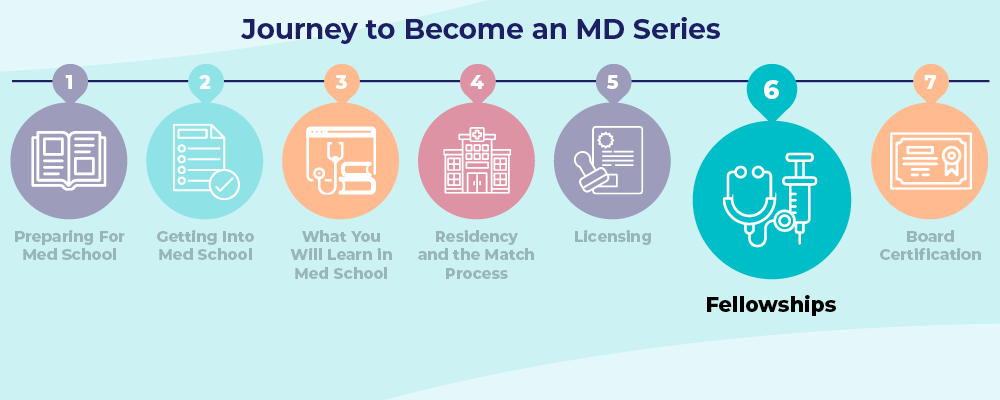
Pursuing a fellowship is an exciting and important step for physicians aiming to specialize in a particular field. After completing med school and residency, a fellowship is a great opportunity to experience intensive, focused training in a specific area. This additional medical training allows you to gain in-depth knowledge and advanced skills beyond general practice, ensuring you are well-prepared to handle complex cases and provide specialized care.
Specialties include cardiology, orthopedic surgery, and neurology to name a few. During your clinical rotations, you might discover a specialty that truly sparks your passion for medicine. Imagine becoming a cardiologist, orthopedic surgeon, or neurologist—a fellowship can bring you one step closer to that goal by making you a more adept physician.
The fellowship application journey is competitive, but it can still be rewarding. The process typically involves competitive applications, rigorous interviews, and the selection of a program that aligns with one’s career goals. During the fellowship, doctors work closely with experienced mentors, engage in cutting-edge research, and participate in specialized clinical rotations.
This immersive experience not only sharpens medical expertise but can create a network that can lead to other professional opportunities.
To give you a starting point for what to consider for fellowships, we break it down further in these blogs. You can learn about the the process of finding a specialty based on your personality and how fellowships are part of that process.
- What type of doctor should I be? Finding the best specialty for your personality
- What happens after medical school? Preparing for what’s next
Medical specialties
Completing a fellowship is essential for those who aspire to excel in a medical specialty, enabling them to deliver high-quality care and contribute significantly to their chosen field.
Not only have we compiled a comprehensive list of medical specialties, but we have also done a deep dive into a wide range of these programs and positions. If you don’t see one you are interested in, you can search on this blog for an article with more information.
- The ultimate list of medical specialties and subspecialties
- Examining 23 internal medicine subspecialties
- Selecting a specialty: Emergency medicine
- 14 types of surgeons: Dissecting the differences
- What do radiologists do? A closer look at this medical specialty
- What is a gastroenterologist? Examining this important medical specialty
- What is an anesthesiologist? Understanding this surgical care role
- What is a cardiologist? A look at these heart health specialists
SGU fellowship stories
Over the years, SGU graduates have landed highly competitive fellowships in medicine from plastic surgery to oncology. Take a glance at some of the stories below to see how SGU helped bring these students closer to reaching their goals.
- Chance encounter leads alum to plastic surgery fellowship
- Canadian grad secures highly competitive EM Fellowship
- Cancer scare inspires grad to become oncologist at Memorial Sloan Kettering
- 8 SGU graduates practicing medicine back home in the US
- Desire to make an impact leads SGU grad to become an expert in LGBTQIA+ healthcare
Feeling inspired by those stories?
Each of the successful grads we highlighted took the crucial step of submitting an application to SGU’s School of Medicine. The good news? You too can apply to join a network of successful and talented grads like SGU’s.

